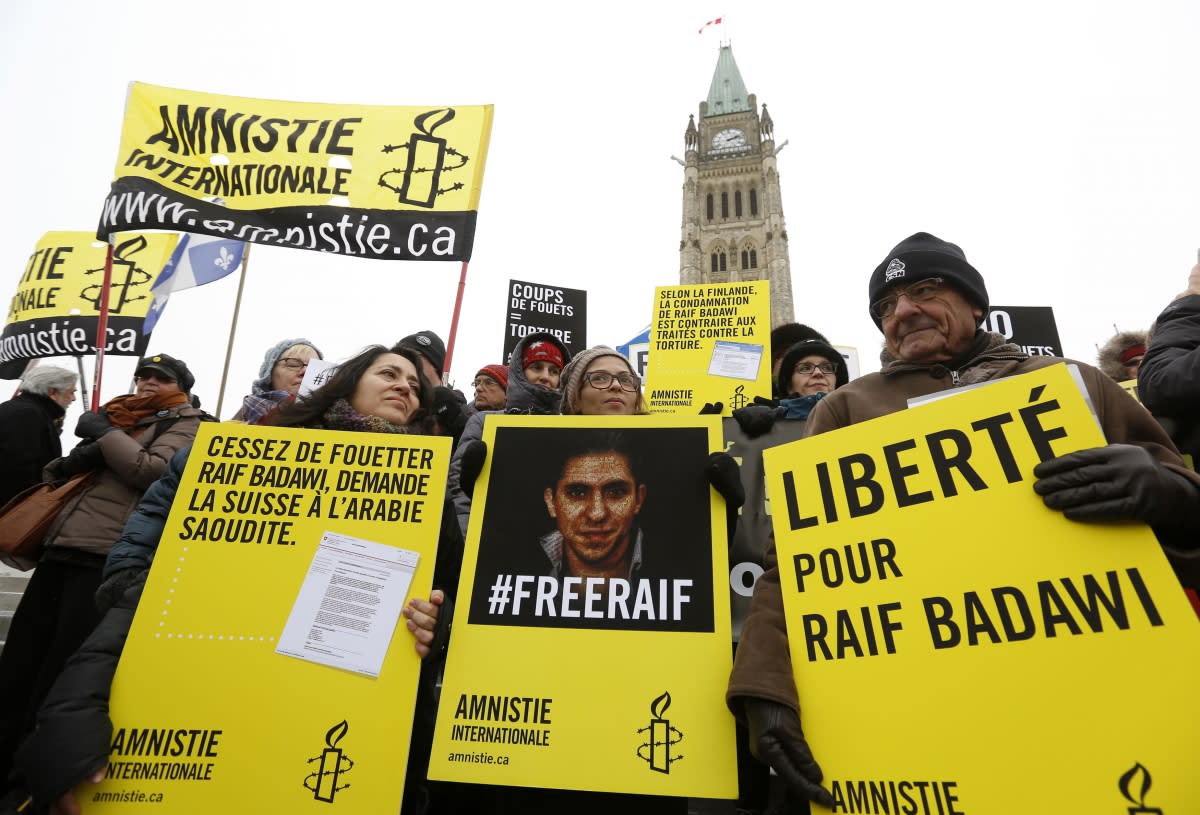U.N. Watchdog Slams 'Scandalous' Choice of Saudi Arabia to Head Human Rights Panel

The United Nations has been criticized for appointing a representative from the Saudi Arabian government as the head of an influential human rights panel. The choice has been condemned by U.N. Watch, a non-governmental watchdog that monitors U.N. activity, and the wife of a Saudi Arabian blogger who was sentenced to 1,000 lashes by the Gulf state last year.
Faisal bin Hassan Trad, who is Saudi Arabia's ambassador to the U.N., is now the chair of a panel of five ambassadors, known as the Consultative Group, which is part of the U.N.'s Human Rights Council (UNHRC) and is responsible for choosing experts to report on human rights violations in countries across the world. A U.N. report obtained by U.N. Watch and dated September 17 confirmed Trad's appointment.
U.N. Watch Executive Director Hillel Neuer said in a statement on Sunday, "It is scandalous that the U.N. chose a country that has beheaded more people this year than ISIS to be head of a key human rights panel," referring to the Islamic State militant group which has seized territory in Iraq and Syria and has become notorious for carrying out brutal executions. "Petro-dollars and politics have trumped human rights," Neuer continued.
Ensaf Badawi, the wife of blogger Raif Badawi, also condemned the decision, writing in a message posted on Facebook that the U.N.'s appointment of Trad to lead the human rights panel was like giving Riyadh "a green light to start flogging [my husband] again."
Badawi was sentenced to 10 years in prison and 1,000 lashes for "insulting Islam" under the country's strict Sharia law, after he created a liberal online forum. He received the first 50 lashes of his sentence in January this year but the next rounds of lashes were postponed on medical grounds. Saudi Arabia's supreme court upheld Badawi's sentence in June despite international condemnation. It can now only be overturned by a royal pardon.
Rights group Amnesty International last month condemned Saudi Arabia for remaining one of the "most prolific executioners in the world"—the country executed 2,200 people between January 1985 and June 2015.
International rights group, Human Rights Watch, reported in June that Riyadh has executed more than 100 people since the beginning of 2015, more than the 88 executions which were carried out in the whole of 2014. Forty-seven of those executed had been found guilty of drug offences.
The U.N. has not yet responded to Newsweek's request for comment.
This article has been updated to reflect the fact that the U.N. have not yet responded to Newsweek's request for comment.
Related Articles


